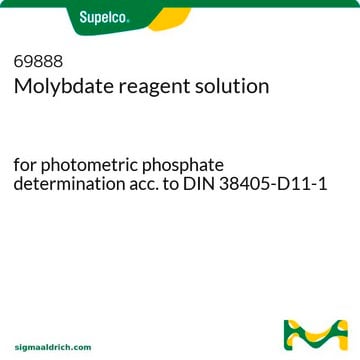75034
2,3-Hexanedione
analytical standard
Synonym(s):
Acetyl butyryl
About This Item
Recommended Products
grade
analytical standard
Quality Level
vapor density
3.9 (vs air)
vapor pressure
10 mmHg ( 20 °C)
Assay
≥96.0% (GC)
shelf life
limited shelf life, expiry date on the label
technique(s)
HPLC: suitable
gas chromatography (GC): suitable
refractive index
n20/D 1.409
n20/D 1.412 (lit.)
bp
128 °C (lit.)
density
0.934 g/mL at 25 °C (lit.)
application(s)
cleaning products
cosmetics
flavors and fragrances
food and beverages
personal care
format
neat
storage temp.
2-8°C
SMILES string
CCCC(=O)C(C)=O
InChI
1S/C6H10O2/c1-3-4-6(8)5(2)7/h3-4H2,1-2H3
InChI key
MWVFCEVNXHTDNF-UHFFFAOYSA-N
Looking for similar products? Visit Product Comparison Guide
Application
Packaging
Signal Word
Warning
Hazard Statements
Precautionary Statements
Hazard Classifications
Flam. Liq. 3 - STOT RE 2 Inhalation
Target Organs
Respiratory system
Storage Class Code
3 - Flammable liquids
WGK
WGK 2
Flash Point(F)
82.4 °F - closed cup
Flash Point(C)
28 °C - closed cup
Choose from one of the most recent versions:
Already Own This Product?
Find documentation for the products that you have recently purchased in the Document Library.
Customers Also Viewed
Our team of scientists has experience in all areas of research including Life Science, Material Science, Chemical Synthesis, Chromatography, Analytical and many others.
Contact Technical Service








